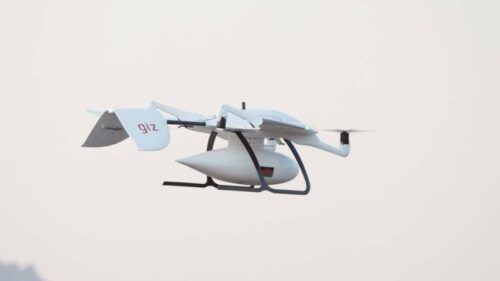Researchers have developed a way to pilot drones over long range using simple mobile communication technology.

Drones were first designed to track or spy for military applications which required long range communication. But now, as they are being used for domestic applications like mapping and videography, the system does not exceed for long ranges. Even if we wish to do so, using a network of communication similar to the one used in defense systems may not be a good idea.
To overcome these problems, researchers at Fraunhofer HHI have developed new communication protocols that are insensitive to jerky data streams. The drone stays connected, even if the data rate fluctuates. Safety-critical information required for the creation of aerial photographs, such as position, altitude, flight direction, speed and other data, can be transmitted without interruption—a key prerequisite for the high safety requirements in aviation.
They equipped a drone with a commercially available LTE system and another with SUCOM mobile network module, which has the new communication protocols. The results showed that the connection that used the conventional module kept dropping out, the SUCOM module provided a stable connection.
The SUCOM mobile network module can be installed in drones that are already in use: In Malawi, for example, drones equipped with the new module deliver medicines, blood supplies and other vital materials to the population during the rainy season, covering distances of up to 40 kilometers. They take off from four airfields, each of which has a “remote pilot” who enters the current route into the system and defines the waypoints that will guide the drone. One click is all it takes to send the flight plan to the drone.
The data needed to make this happen is sent to a server in Cape Town, from where it is transmitted to the SUCOM module and then on to the flight controller on the drone. While in transit, the drone is monitored continuously by the remote pilot in real time. The drone is also equipped with satellite technology, which can be used if the DSL connection fails. The drones can also be operated via a smartphone and VPN connection, if needed.
Researchers believe that the SUCOM system can provide better coverage for remote locations and are working on developing and testing the system for global applications.







Test 234